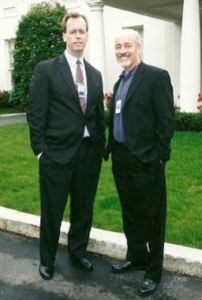 In many communities, decisions regarding animal welfare are complicated by a host of competing priorities. When evaluating competing priorities it’s easy to look to the bottom line. When that happens, the questions of conscience concerning animal welfare can be overlooked.
In many communities, decisions regarding animal welfare are complicated by a host of competing priorities. When evaluating competing priorities it’s easy to look to the bottom line. When that happens, the questions of conscience concerning animal welfare can be overlooked.
There will always be enough injustice and human suffering in the world to make animal welfare seem less important. But compassion is not a finite commodity. We demonstrated the power of compassion in 2012 by ending euthanasia as our community’s method for controlling pet overpopulation. That is no small achievement; indeed, it places us among the nation’s most humane communities.
Still it’s not difficult to understand how decision makers can feel strongly that human need and wants are more important than animal needs and wants. When this happens, animal welfare can be reduced to a simple equation of what’s affordable, profitable or expedient. We can almost fool ourselves into thinking we’re dealing with widgets rather than lives. It’s at this point that our moral fiber emerges.
German philosopher Immanuel Kant opined that “We can judge the heart of a man by his treatment of animals.” Indian Prime Minister Mahatma Gandhi expanded on this truism stating the moral progress of an entire community “can be judged by the way its animals are treated.” No less than Abraham Lincoln said he considered animal welfare as important as human welfare for “that is the way of a whole human being.”

Matthew Scully, senior speech writer for President George W. Bush and author of the book Dominion, put it this way: “We are called upon to treat animals with kindness, not because they have rights or power or some claim to equality, but because they don’t; because they all stand unequal and powerless before us. Animals are easily overlooked, their interests easily brushed aside.”
The danger now is that we return to thinking there is only enough compassion in our community for our elderly but not for our children; or just enough love for our children but not for our mentally ill; or just enough kindness for our human populations but not for our animals. St. Francis of Assisi taught that to regard the lives of animals as worthless is one small step away from regarding some human lives as worthless.
We compound community wrongs when wrongs done to animals are excused by saying there are more important wrongs done to humans and we must concentrate on those alone. A wrong is a wrong, and when we shrug off these little wrongs we do grave harm to ourselves and others.
“When we wince at the suffering of animals, that feeling speaks well of us… and those who dismiss love for our fellow creatures as mere sentimentality overlook a good and important part of our humanity.” (Scully: Dominion)
As 2012 comes to a close, I want to thank the Yavapai County Board of Supervisors, the Prescott City Council and the Prescott Valley Town Council for their support in 2012 and ask them to kindly remember animal welfare as they begin to build their 2013/14 budgets.
If you want to live in a community where the circle of compassion includes animals, let your elected officials know how important their support of the local shelter is to you. You can also help this humane initiative directly by making a yearend donation; including your shelter in your will; joining their volunteer program; or adopting a pet from them. Together we transformed our community into a showcase for “that good and important part of our humanity.” This can continue into 2013 and beyond – but only with your help, involvement and support.
